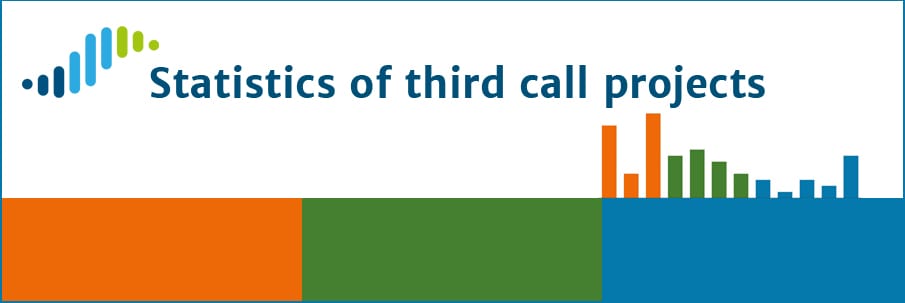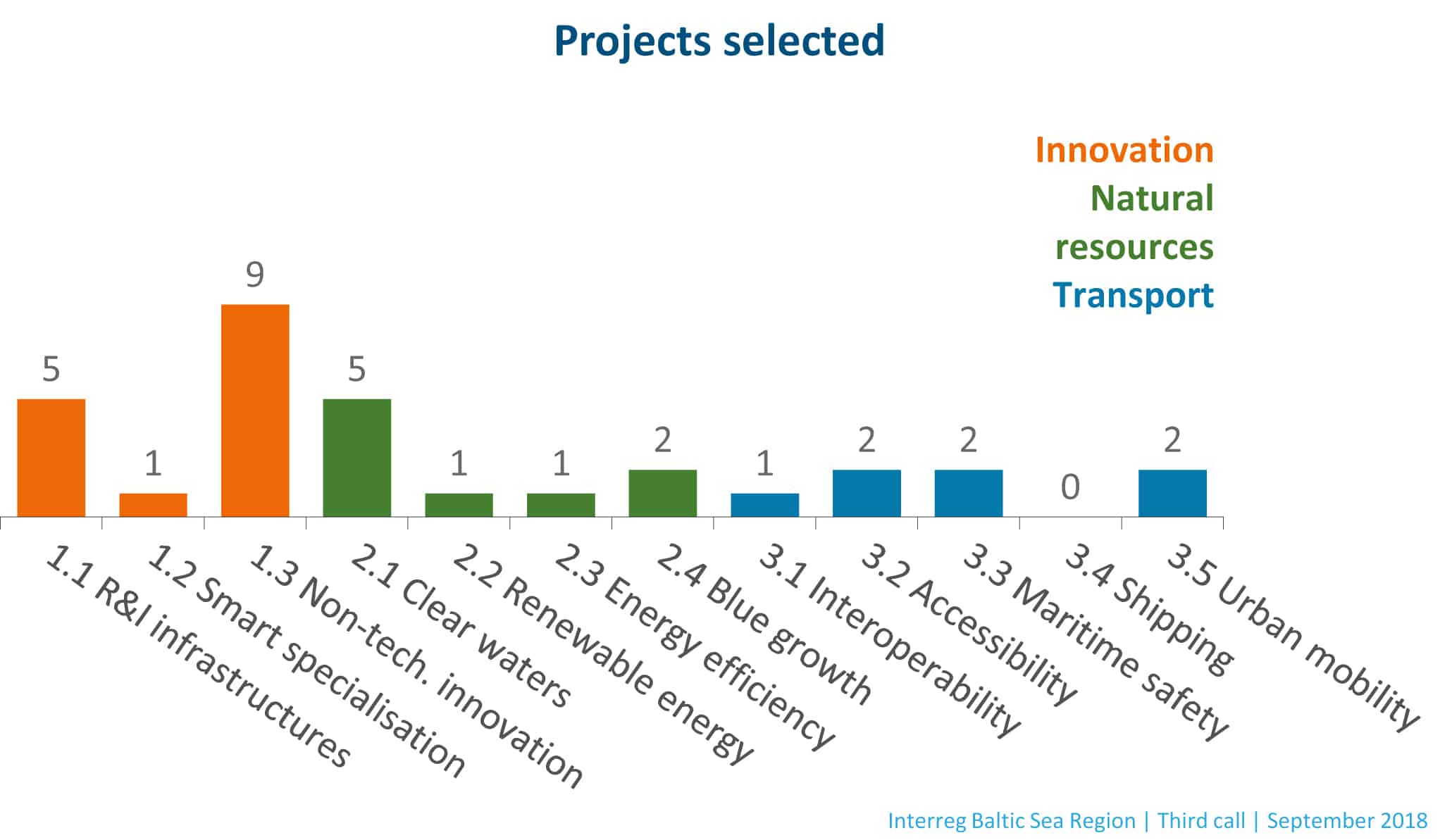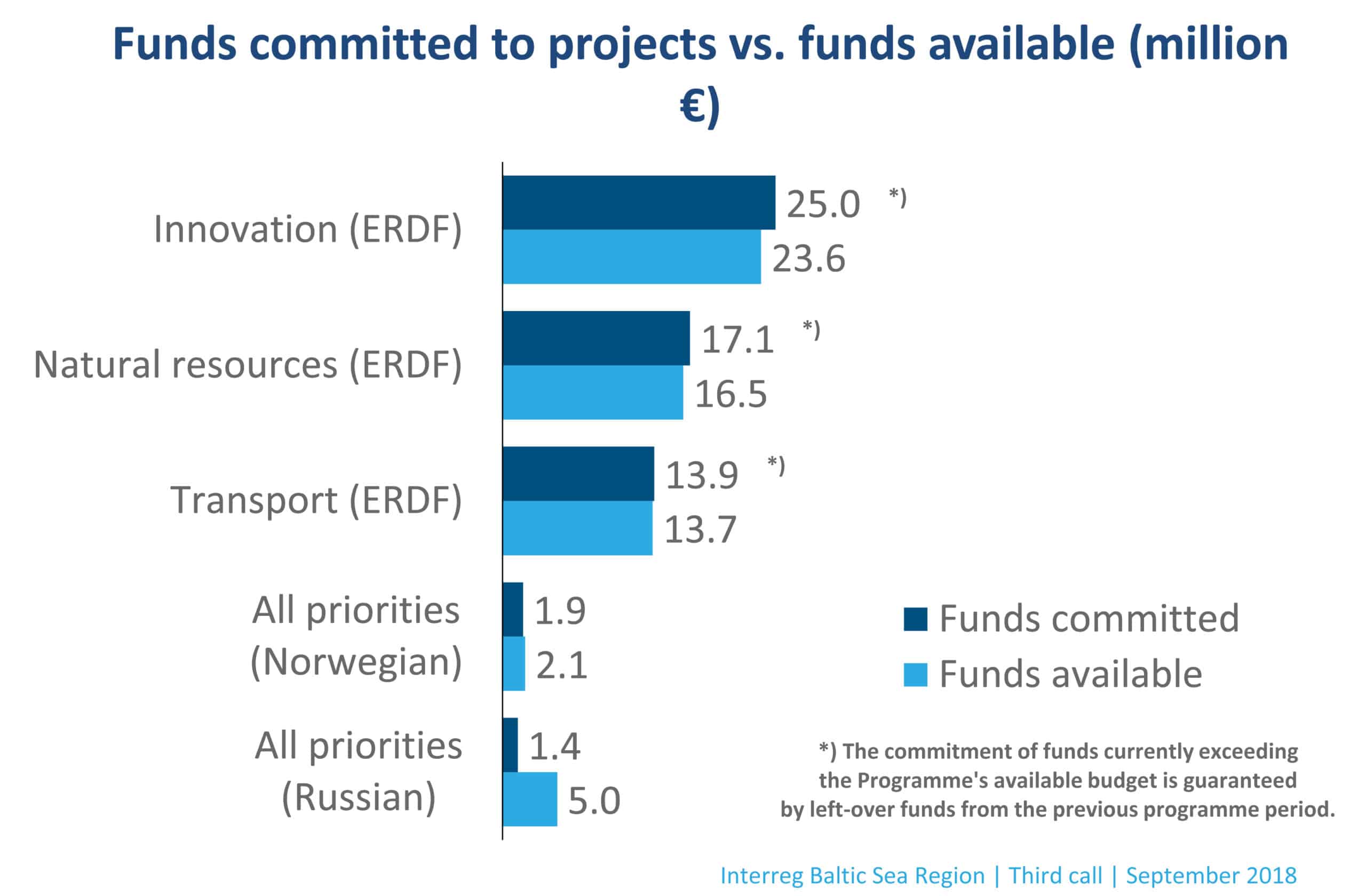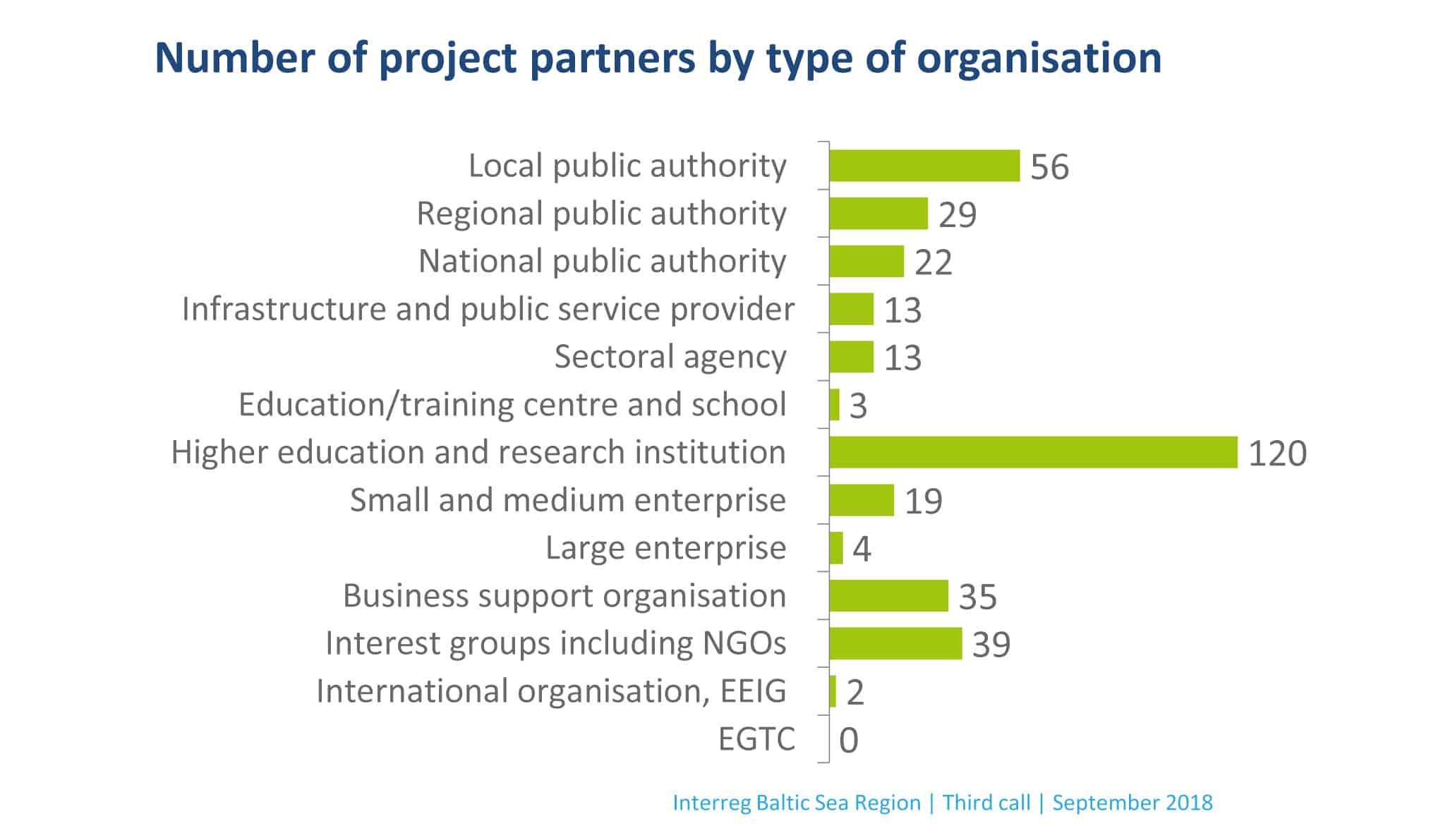Interreg Baltic Sea Region funds cooperation to contribute to a more innovative, better accessible and accessible region. 31 projects presenting new ideas how to reach out towards these goals have recently been selected by the Monitoring Committee. Check on the statistics and topics covered by the projects.

Interreg Baltic Sea Region – projects approved in the third call
Alignment with the Programme themes
Almost all Programme themes have been addressed indicating a wide variety of topics covered by the projects. The highest number of projects were selected in the thematic objective “non-technological innovation” (nine projects) and “clear waters” (five projects). In sustainable transport, an equal number of two projects were selected in three out of five thematic objectives: “accessibility of remote areas”, “maritime safety” and “urban mobility”.
Three sources of financing cooperation
In the third call, as much as EUR 56 million of the European Regional Developing Fund (ERDF), EUR 1.9 million of the Norwegian National Fund and EUR 1.4 million of ENI/Russian National Fund have been allocated to the projects.

Partnerships for a good cause
About 350 partners from ten countries from the Programme area will work together in transnational projects for a more innovative, better accessible and sustainable Baltic Sea region. The majority of them are research organisations, higher education institutions and public authorities. The increase in the involvement of public authorities reflects the focus of the call, i.e. increasing capacity of public authorities.

A lot of ideas for making the Baltic Sea region a better place
When referring to the natural resources, the projects deal among other things with the management of drained peatlands and urban drainage systems, reducing water pollution from microplastics and supporting products from macroalgae in entering the market.
Offering transport responsive to demands, improving accessibility and mobility of touristic remote areas, and increasing the safety of navigation are examples of ideas picked up by projects aiming at sustainable transport.
If you are interesting in more details about topics covered by the projects approved in the third call, please check the short summaries.







